News

Sri Lankan MP Jeevan Thondaman ties the knot in Chennai
Sri Lankan MP and Ceylon Workers’ Congress (CWC) leader Jeevan Thondaman’s wedding was held in Chennai today, with several prominent guests in attendance.
Former President Ranil Wickremesinghe was among those present at the ceremony, marking a notable moment at the high-profile event.
https://english.newstube.lk/news?start=528#sigProId66a7851600

China’s Electric Bus Push Sparks Debate Over Sri Lanka’s Transport Future
China has signalled a fresh expansion of its development presence in Sri Lanka, with Beijing now studying a proposal to supply a fleet of electric buses to the island.
Chinese Ambassador Qi Zhenhong, speaking at the 2025 China Aid Training Alumni Reception in Colombo, described the initiative as part of a “new starting point” in bilateral relations one shaped by recent high-level visits and renewed progress in stalled infrastructure projects.
But as Colombo weighs the offer, concerns are mounting over whether the country’s chronically loss-making public transport system particularly the Sri Lanka Transport Board (SLTB)—is structurally prepared to operate and maintain a modern electric-bus fleet without deep reforms.
According to the Ambassador, China is reviewing the electric-bus project at Sri Lanka’s request. The proposal aligns with Colombo’s long-term goals of cutting fuel imports, reducing urban pollution, and modernising an ageing bus fleet that is widely criticised for overcrowding, delays, and frequent breakdowns.
Electric buses would reduce operational fuel costsdiesel accounts for over 35% of SLTB’s recurrent expenditure and its efficiency could improve service reliability if managed under a disciplined maintenance regime.
China’s experience in clean-mobility technologies, from large-scale EV deployment to advanced battery systems, adds to the attractiveness of the offer.
Yet the numbers paint a stark picture.The SLTB has recorded annual operating losses exceeding Rs. 45–50 billion in recent years, burdened by overstaffing, outdated fleets, and politically driven fare controls.
The enterprise operates more than 6,000 buses, many well past their service lifespan, with availability rates frequently falling below 50%.
Introducing a fleet of high-value electric buses into an organisation with such structural weaknesses raises major risks. Electric buses require specialised charging infrastructure, battery-management systems, and trained technicians none of which the SLTB currently possesses. Without operational reforms, experts warn that Sri Lanka could end up with expensive assets underutilised or rapidly deteriorating, repeating past failures in donor-funded transport upgrades.
Ambassador Qi highlighted broader Chinese-supported progress, from the resumption of work on the Central Expressway to near-finalisation of the Sinopec energy project. He pointed to expanding human-resource exchanges, with nearly 1,000 Sri Lankans trained in China across sectors from agriculture to disaster management.
He also noted opportunities arising from China’s new Five-Year Plan, growing outbound tourism, and sustained technological advances in AI, hydrogen energy, and biopharmaceuticals. Beijing frames these developments as pathways for mutual gain especially for Global South partners navigating geopolitical uncertainty.
But for Sri Lanka, still grappling with debt restructuring, the key concern is whether acceptance of the electric-bus programme deepens long-term dependency or supports sustainable modernisation.
The Chinese proposal arrives at a moment when public dissatisfaction with transport services is at a peak. Buses are overcrowded, unreliable, and unsafe, especially for women and schoolchildren. Any move toward electric mobility could mark a turning point if paired with governance reforms, transparent procurement, and a clear financial plan.
The real test will be whether Sri Lanka can leverage Beijing’s offer to fix its transport system—or whether it risks repeating a cycle of costly assistance without lasting reform.
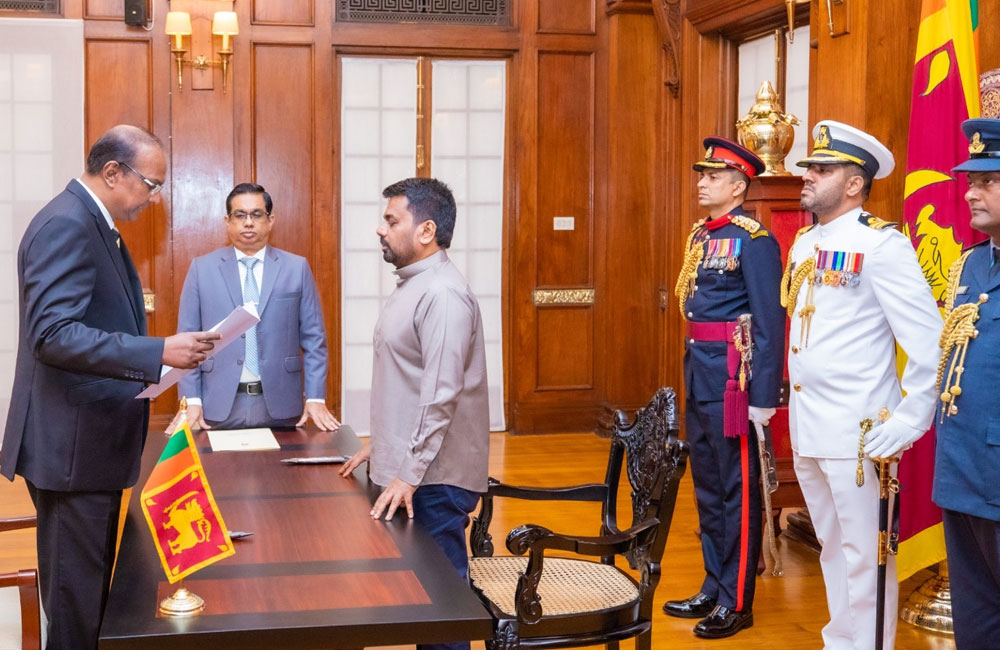
Justice Shiran Gooneratne appointed as Acting Chief Justice
Justice of the Supreme Court Anthony Lalith Shiran Gooneratne was sworn in as the Acting Chief Justice before President Anura Kumara Dissanayake this morning (22) at the Presidential Secretariat.
Due to Chief Justice Preethi Padman Surasena’s travel abroad from 22 November 2025 to 27 November 2025, the President has made this appointment effective until the Chief Justice’s return to Sri Lanka.
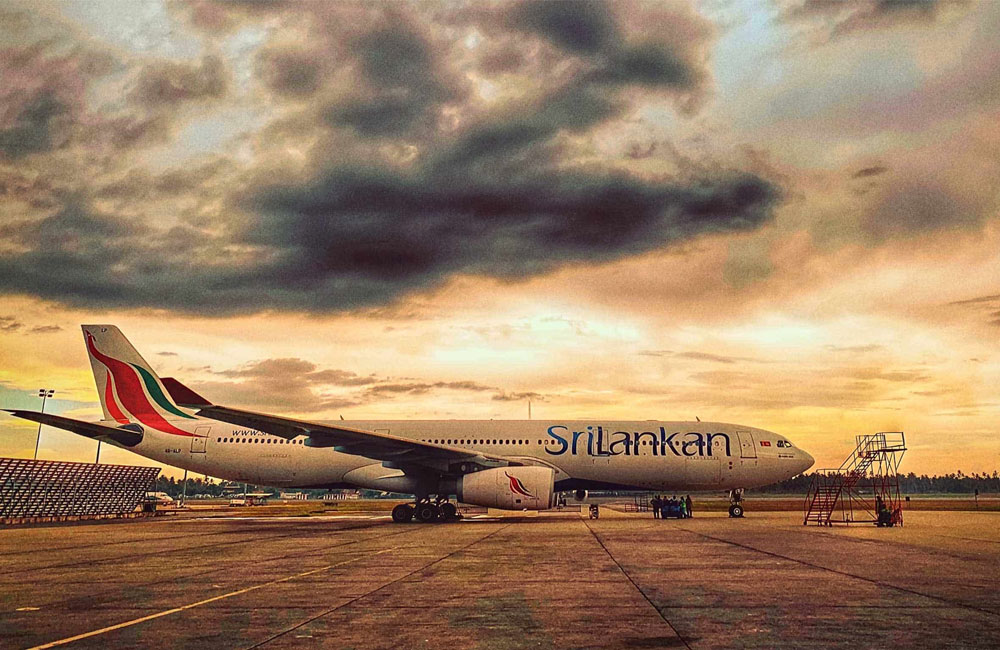
Sri Lanka Reaches Breakthrough Deal to Restructure SriLankan Airlines Debt
Sri Lanka has moved a step closer to concluding its long-delayed external debt restructuring after the Government and SriLankan Airlines announced yesterday that they had reached an agreement in principle with a majority bloc of international bondholders to restructure the airline’s US$175 million Government-guaranteed bond maturing in June 2024.
The announcement ends months of uncertainty surrounding the treatment of the carrier’s debt—a key component of the country’s wider restructuring of US$210 million linked to the airline. President and Finance Minister Anura Kumara Dissanayake had assured Parliament during the 2026 Budget presentation on 7 November that this final portion of external commercial debt would be settled by the end of 2025.
In a statement, SriLankan Airlines said it held restricted negotiations with six members of the Ad Hoc Group of Bondholders between 23 October and 19 November. These members collectively control about 55% of the outstanding Notes. The talks were supported by financial adviser Lazard and legal counsel Norton Rose Fulbright, while the Bondholder Group was represented by Akin Gump Strauss Hauer & Feld.
The agreement remains conditional on Cabinet approval and non-objection from both the International Monetary Fund (IMF) and Sri Lanka’s Official Creditor Committee, as it forms part of the country’s broader debt workout framework. Once implemented, officials say the deal will help restore normal relations with external creditors while giving the airline room to stabilise its operations.
SriLankan Airlines Chairman Sarath Ganegoda welcomed the development, noting that the airline can now “look to the future with greater optimism.” He thanked bondholders for adopting a “pragmatic approach” that avoided a damaging confrontation. “Our island nation depends on a reliable national carrier for economic recovery,” he said.
Under the agreed parameters, the Government will be discharged from its guarantee once the restructuring is completed. The deal includes a 15% haircut on total claims, with the remaining balance to be settled through a mix of cash and medium-term Government Bonds carrying a 4% interest rate.
Treasury Secretary Dr. Harshana Suriyapperuma described the breakthrough as a “new step toward normalising external relations,” adding that the deal would raise the completion rate of Sri Lanka’s external debt restructuring to 99%. He expressed confidence that the agreement would support Sri Lanka’s credit rating recovery and pave the way for a return to global capital markets.
The transaction will be executed through a dual structure: a US$60 million cash tender offer and a bond exchange offer linked to the existing 2028 Sri Lankan Government 4% sovereign bond. Tendering bondholders will receive payment at 85% of their total claim value, while remaining holders may exchange their Notes for Government Bonds amortising between 2026 and 2028. Any non-participating Notes will be mandatorily exchanged at a reduced rate of 75% of the total claim.
The restructuring will only proceed once an extraordinary resolution is approved by at least 75% of voting bondholders. The Bondholder Group will also receive an agreed work fee for its negotiation efforts.
Both the Government and SriLankan Airlines expressed hope that the transaction can be finalised before year’s end, marking a crucial milestone in the country’s path toward long-term debt sustainability.
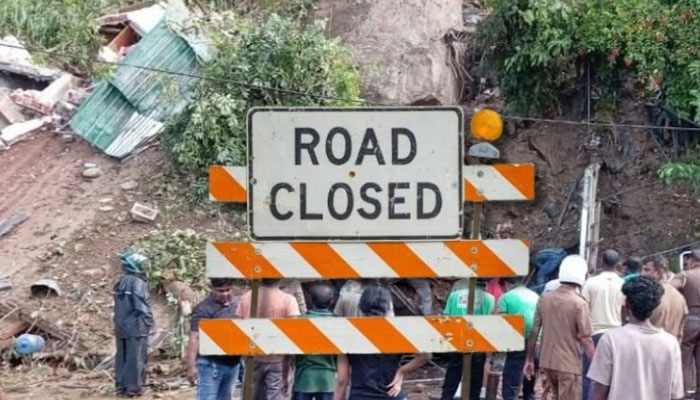
Colombo-Kandy road closure
The Colombo–Kandy main road at Ganethanna will remain closed until tomorrow afternoon following a landslide in the lower Kadugannawa area this morning (22), Kegalle District Secretary Jagath M. Herath said.
He told the media that the road cannot be reopened yet because a large rock remains lodged between concrete blocks at the site, posing a risk of further collapse.
Vehicles are being redirected through alternative routes to ensure smooth traffic flow.
“We have closed the road from both sides. We are trying to reopen it by Sunday afternoon, but a large rock is still unstable and could fall again. Therefore, it is not safe to open the road at this time. Police officers are guiding vehicles via alternative routes.” Herath added.
He also noted that on Monday, students traveling for the Advanced Level exams will need access. “We hope to reopen a section of the road and arrange buses from the Mawanella depot to ensure travel for students and teachers,” he said.

LFCs Urged to Pivot to Industrial Lending as Sri Lanka Seeks Investment-Led Growth
Sri Lanka’s licensed finance companies (LFCs) are being pushed toward a decisive shift in their business model, as economic recovery now hinges on industrial expansion rather than the consumption-heavy credit patterns that defined the past decade.
The Lanka Rating Agency (LRA), in its latest sector review for 2025, warns that unless LFCs redirect capital toward production, they risk losing relevance in an economy attempting to rebuild its export base and generate sustainable jobs.
According to LRA analysts, the sector’s sizeable asset base, strengthened risk-management frameworks, and improving capital buffers place LFCs in a position to influence the country’s next phase of growth.
But this will require moving beyond familiar ground such as vehicle financing and personal loans and stepping into investment-oriented segments industrial modernization, project lending, supply-chain finance, and working capital for export manufacturers.
Such a reorientation, the Agency argues, is not merely desirable but necessary. Sri Lanka’s firms are under pressure to climb the value chain, raise productivity, and compete more aggressively in regional markets.
“LFCs can become catalysts for capital formation if they redirect credit to activities that generate foreign exchange and long-term employment,” the report notes.
A transition toward outward-oriented lending would also strengthen corporate balance sheets at a time when businesses must scale to survive.
Financial data for 2025 shows that the industry is entering the New Year with stronger fundamentals, creating room for this strategic shift. Regulatory capital stood at approximately Rs. 433 billion in the first quarter of FY25/26, supporting a robust capital adequacy ratio of about 22%well above minimum regulatory thresholds.
Sector assets reached nearly Rs. 2.28 trillion, growing at an annual compound pace close to 8%. The gross non-performing loan ratio fell sharply to 8.3%, from 13.6% a year earlier, reflecting improving credit quality.
Profitability has also stabilised: LFCs posted Rs. 69.4 billion in PAT in FY24/25 and Rs. 18 billion in the first quarter of FY25/26.
However, vulnerabilities persist. Sector liabilities expanded 29.1% year-on-year, pushed up by a 76% surge in borrowings, and liquidity pressures remain.
A significant share of deposits and loans mature within 12 months, creating rollover risk. LFCs are also exposed to commodity volatility after the gold-backed loan portfolio jumped 30% in FY24/25, driven by a 34% rise in global gold prices. Roughly half of long-term assets are still funded using short-term deposits an imbalance that leaves institutions sensitive to interest-rate shocks.
The Central Bank’s consolidation pathway also looms large. Under the NBFI Master Plan, finance companies must reach a minimum stability score of 60 by 2027 to function independently, pushing weaker firms toward mergers or exit. Currently, the 12 largest LFCs control nearly 80% of industry assets, with loans and advances amounting to Rs. 1.75 trillion, or 76.6% of total assets.
Despite these pressures, the LRA maintains that the sector has the structural capacity to support a shift toward an investment-driven growth model if it can commit to industrial project finance and manage its balance-sheet risks with greater discipline.
For policymakers seeking to revive exports and rebuild productive capacity, the evolution of the LFC sector may determine whether Sri Lanka’s recovery becomes durable or slips back into consumption-driven volatility.
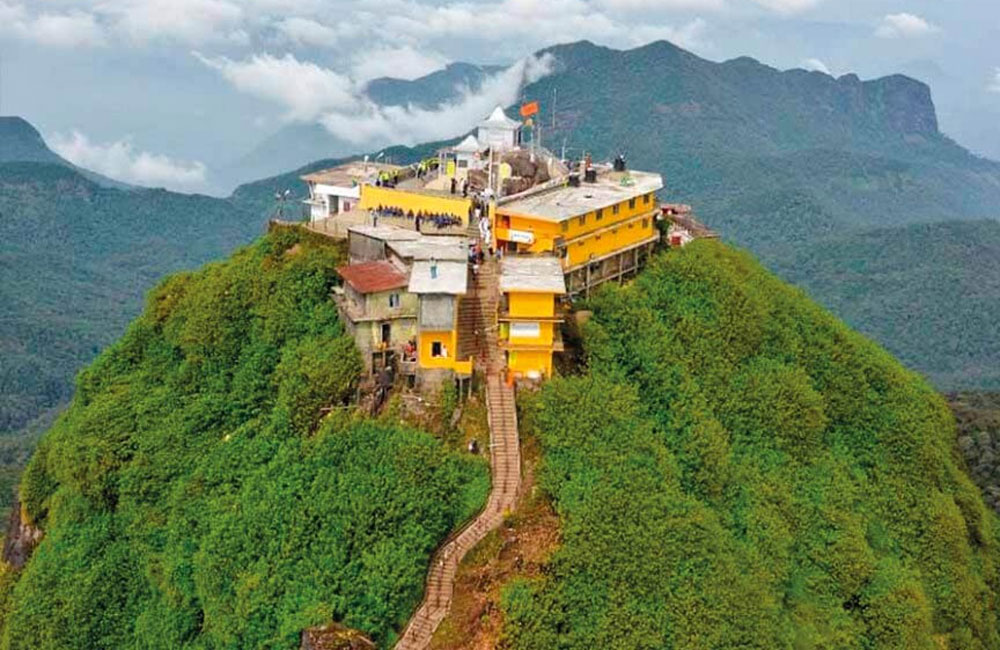
Sri Pada Pilgrimage: Ministry of Environment Bans Small Plastic Bottles, Polythene Wrappers
Minister of Environment, Dhammika Patabendi, has informed pilgrims visiting the Adam's Peak, to refrain from taking water or other beverage bottles less than one liter.
Minister Patabendi, further advised pilgrims to avoid bringing food and beverages that are packaged with polythene wrappers.
This year's Sri Pada pilgrimage season has been named "Muni Siripa - Green Pilgrimage" under the program to minimize environmental pollution caused by plastic materials.
The Sri Pada pilgrimage season will officially commence on the Unduwap full moon poya day.
News 1st

Why Did Ranil Travel to India with Maithree?
Former President Ranil Wickremesinghe Flies to Chennai for MP Jeevan Thondaman’s Wedding
Former President and United National Party leader Ranil Wickremesinghe departed from Katunayake Airport early this morning (21st), bound for Chennai, India. He was accompanied by his wife, Maithree Wickremesinghe, for the journey. According to airport officials, the couple arrived at Katunayake Airport in the early hours and boarded SriLankan Airlines flight UL-121 at 08:40 a.m.
The Wickremesinghes are travelling to India to attend the wedding celebrations of Parliamentarian Jeevan Thondaman, the only son of the late minister and former leader of the Ceylon Workers’ Congress (CWC), Arumugam Thondaman.
Jeevan Thondaman’s wedding is set to take place on the 23rd of this month in Chennai, India. His bride, Seethai S. Nachiyar, comes from a politically-involved family in India and is professionally a medical doctor.
The ceremony is expected to draw a host of political figures from both Sri Lanka and India. Invitations have reportedly been extended to former presidents, including Ranil Wickremesinghe and Mahinda Rajapaksa, among other prominent leaders.
Following the wedding celebrations in Chennai, Jeevan Thondaman is scheduled to return to Sri Lanka, where a public reception will be held in Colombo and at the CWC headquarters in Kotte for friends, supporters, and party members to offer their blessings to the newlyweds.

WADA lifts ban on SLADA
The World Anti-doping Agency (WADA) has lifted the ban it imposed on Sri Lanka Anti-doping Agency, taking into consideration the amendments to the Act to be in compliance with the regulations of the international agency.
In its latest communication to the Director General, Sri Lanka Anti-doping Agency (SLADA), the international agency states that with the recommendations of the independent Compliance Review Committee, WADA’s executive committee has taken the decision to remove SLADA from the list of non-compliant signatories with immediate effect. The communication points out that the executive committee reached the decision following the steps taken by Sri Lanka to enforce the relevant amendments to the anti-doping legal framework to be inline with WADA’s Code. Earlier, on 19 August, WADA announced that SLADA is non-compliance with the international code highlighting several technical facts.
On 7 October, Sri Lanka Parliament passed the Bill to amend the Convention Against Doping in Sports Act No.33 of 2013. The amended Act, Convention Against Doping in Sports Act No.21 of 2025, aligns SLADA’s anti-doping legislation with international standards as stipulated by WADA.
“The International Anti-doping Agency, being responsible for maintaining uniformity in anti-doping standards in sports, does bring regulations on any country to comply with the international standards. Non-compliance to WADA standards may result in countries being non recognised at international sports competitions,” pointed out SLADA Director General (DG) Dr. Shiromi Pilapitiya. Non-compliance with the WADA Code does not restrict countries from participating and winning competitions. “Being in compliance with the world standards enables Sri Lanka sports personnel to be well-recognised internationally, giving them more scope for successful achievements,” Dr. Pilapitiya added, further commenting on the current situation.
By Dhaneshi Yatawara
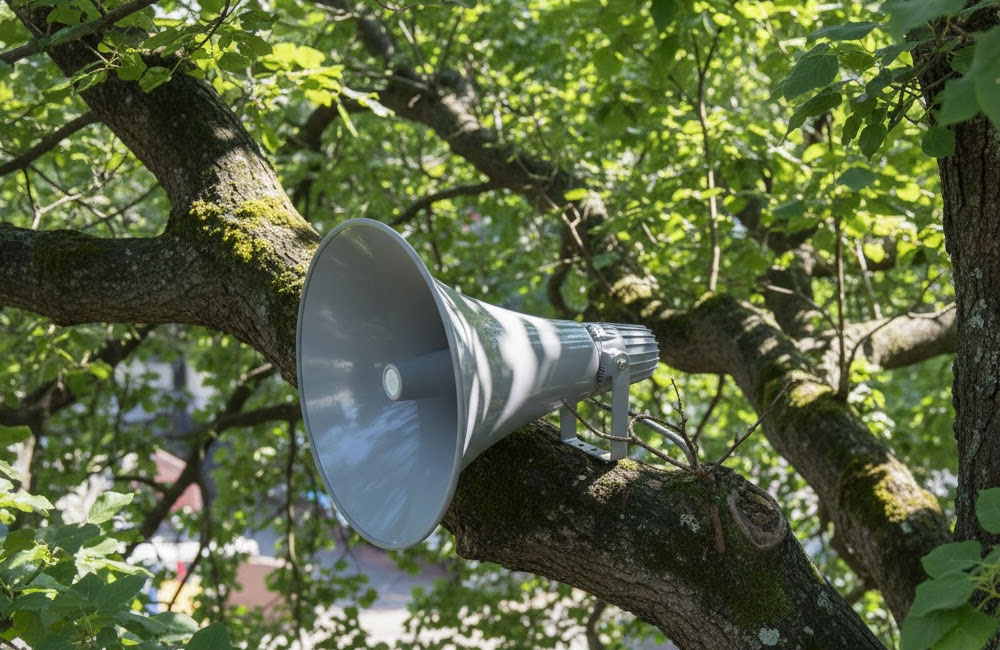
Noise Controls Imposed in Nugegoda Ahead of A/L Exams
Several sound amplification systems installed around the Ananda Samarakoon Open Air Theatre in Nugegoda have been removed by police, following concerns that the noise could disturb students sitting for the A/L examinations.
Despite the removal, authorities have issued special guidelines for a public rally scheduled for today (21) at 2:00 p.m. in Nugegoda, restricting the use of loudspeakers and other sound equipment to ensure minimal disruption.
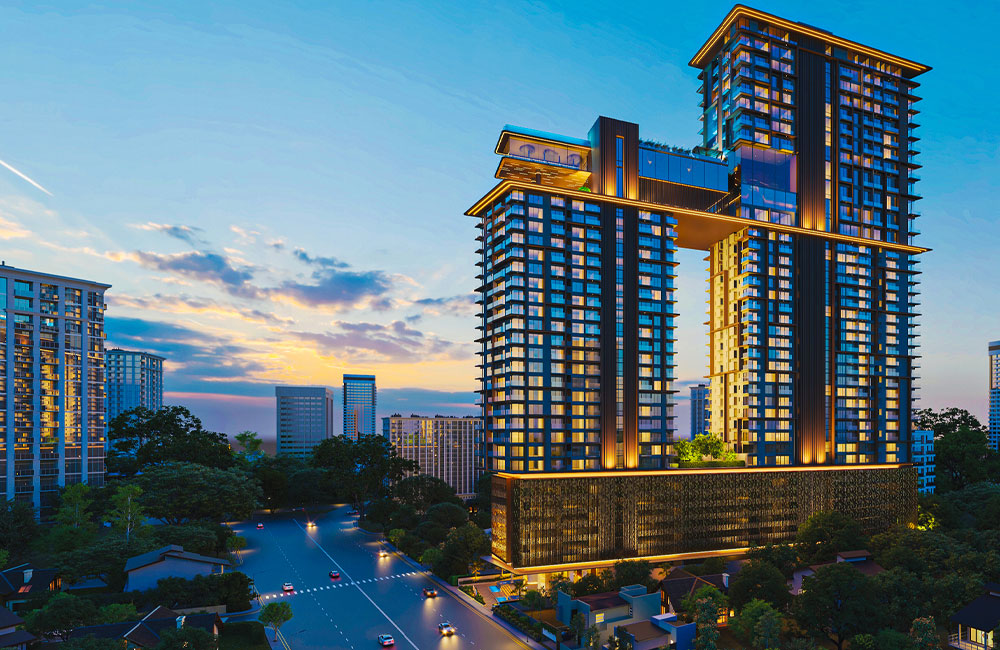
Thummulla High Rise Sparks Zoning Clash as UDA Opens Inquiry
A luxury 40-storey twin tower apartment complex by Home Lands Skyline (Pvt) Ltd at Colombo's Thummulla Junction is in the middle of a burgeoning controversy, driven by allegations of zoning violations amidst growing opposition by residents and a special investigation initiated by the Urban Development Authority (UDA).
Claessen area residents in Colombo 05 have filed a writ petition before the Court of Appeal seeking to cancel the preliminary planning approval granted to Home Lands Skyline for the Pentara Residencies on Havelock Road.
They have argued that the UDA permitted only eight floors of parking and 24 floors of usable space, not a full 40 storey structure.
The project, which includes two towers, is also alleged to have been approved under the wrong zoning classification.
Petitioners insist the land falls under the “Special Primary Residential Development Zone,” a green-density area intended to limit high rise construction.
However, they claim the UDA designated it as a “Medium Density Mixed Development Zone I,” potentially easing height and density controls.
Residents also complained directly to the President, prompting the Presidential Secretariat and subsequently the Prime Minister’s Office to instruct the UDA to conduct a special inquiry into whether its officers used incorrect calculations when granting approval for the 40-storey towers.
An internal UDA committee has reportedly been appointed to investigate whether the approval process was improper or influenced.
Amid the controversy, Home Land Group Chairman Nalin Herath in response to Sunday Times Business query issued a detailed statement strongly defending the project.
He said Pentara Residencies had obtained all required approvals from 11 government agencies, including the UDA, National Building Research Organisation (NBRO), and Central Environmental Authority (CEA).
“Pentara Residencies has secured all necessary statutory approvals from eleven government authorities including the UDA, the NBRO and the CEA thereby ensuring full compliance with all legal and environmental requirements.
The construction process is meticulously monitored with NBRO overseeing daily structural and safety elements underscoring Home Lands’ unwavering commitment to quality, safety and transparency at every stage,” he said.
Herath added that the previous landowner had received UDA clearance in 2016 to build a 60-storey tower on the same site, reinforcing the suitability of the land for high-rise development.
“This fact also reinforces the legitimacy of the present project to build 40 floors, a conscious decision by Home Lands to protect aesthetics and context,” he said.
He dismissed the objections raised by a small group of residents, stating: “These claims have been reviewed and dismissed by the courts, with no legal relief granted against the project.
They do not hold merit and do not reflect the full facts. The project remains fully compliant, legally sound and progressing steadily under regulatory oversight and professional governance.”
Herath further described Pentara Residencies as a symbol of Sri Lanka’s resilience, ambition and economic revival, and said Home Lands continues to demonstrate the ability of local developers to match international standards.

Death toll from Indonesia’s Central Java landslides rises to 30
The death toll from landslides in two regions of Indonesia’s Central Java rose to 30 as rescue efforts continued, the country’s disaster mitigation agency said on Friday.
Some 21 people remain missing after landslides triggered by torrential rain struck the city of Cilacap last week and the Banjarnegara region over the weekend, the agency said.
Rescuers found 7 more bodies in Banjarnegara, the worst-affected area, on Thursday, bringing the death toll to 10 with 18 still missing, Abdul Muhari, the agency’s spokesperson said in a statement late on Thursday.
Dozens of houses were damaged, seven people injured, and more than 900 residents evacuated following the landslide there, Muhari said.
At least 700 rescuers including police and military personnel continue to look for the missing, using excavators to speed up the search, he added.
“We face several obstacles in the search, particularly with landslide ponds filled with debris and continuously flowing waters also risks new landslides due to rains,” Muhari said.
In Cilacap, rescuers found four more bodies this week bringing the death toll to 20 with three people still missing, Muhari said.
Authorities have extended search operations there until next week, and nearly 400 residents have been evacuated.
Indonesia’s wet season started in September and will continue until April, according to the weather agency, raising the risk of floods and extreme rainfall in many areas.
( Source : adaderana.lk)
Page 45 of 653
